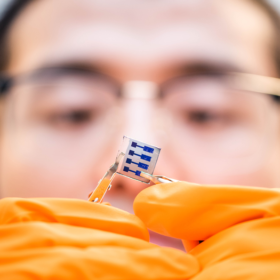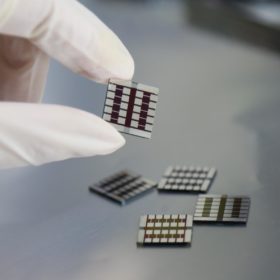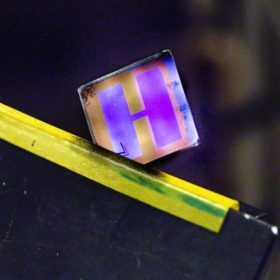Green solvents for a 17%-efficient organic solar cell
Scientists in Sweden and China developed a solution-based process to produce organic solar cells, demonstrating efficiencies better than 17%. The process utilizes paraxylene as a solvent, which the researchers claim is less toxic and more stable than others used to reach high organic solar cell efficiencies, and with more work could be scaled up to produce large area devices.
A pinch of chili gives perovskites a kick
Scientists in China found that capsaicin, the natural compound responsible for a chili pepper’s spicy flavor, can also act as a ‘secret ingredient’ in perovskite solar cells, making them both more efficient and stable. The group added capsaicin to the precursor materials of a common perovskite, leading to dramatic improvements in the resulting solar cell.
An organic solar cell for indoor light
A Swedish-Chinese research team has developed an organic cell said to be ideal for wide use in daily life to power internet of things-enabled devices. The cell could be used to power sensors that detect and measure moisture, particle concentrations, temperature and other parameters indoors.



